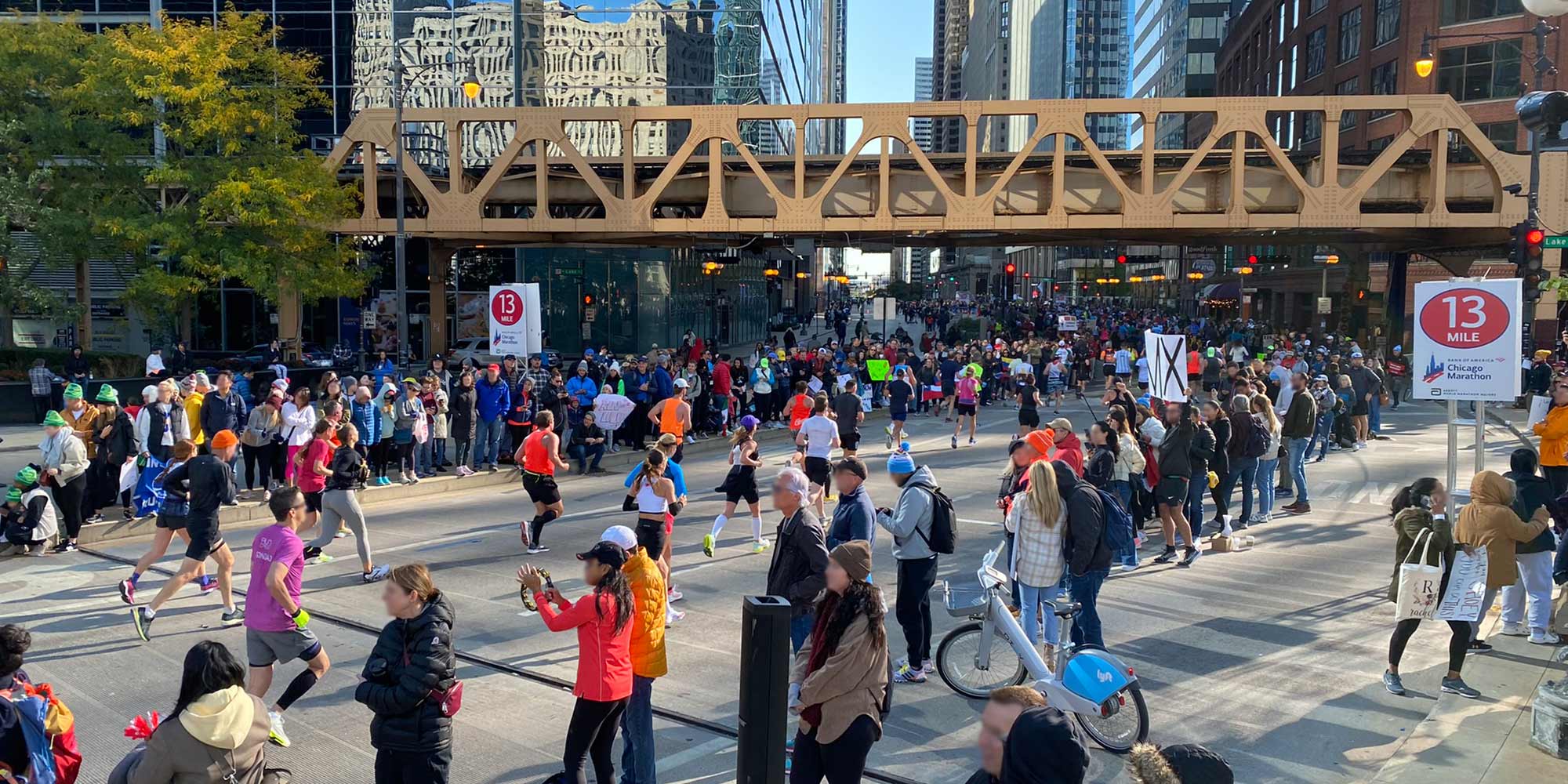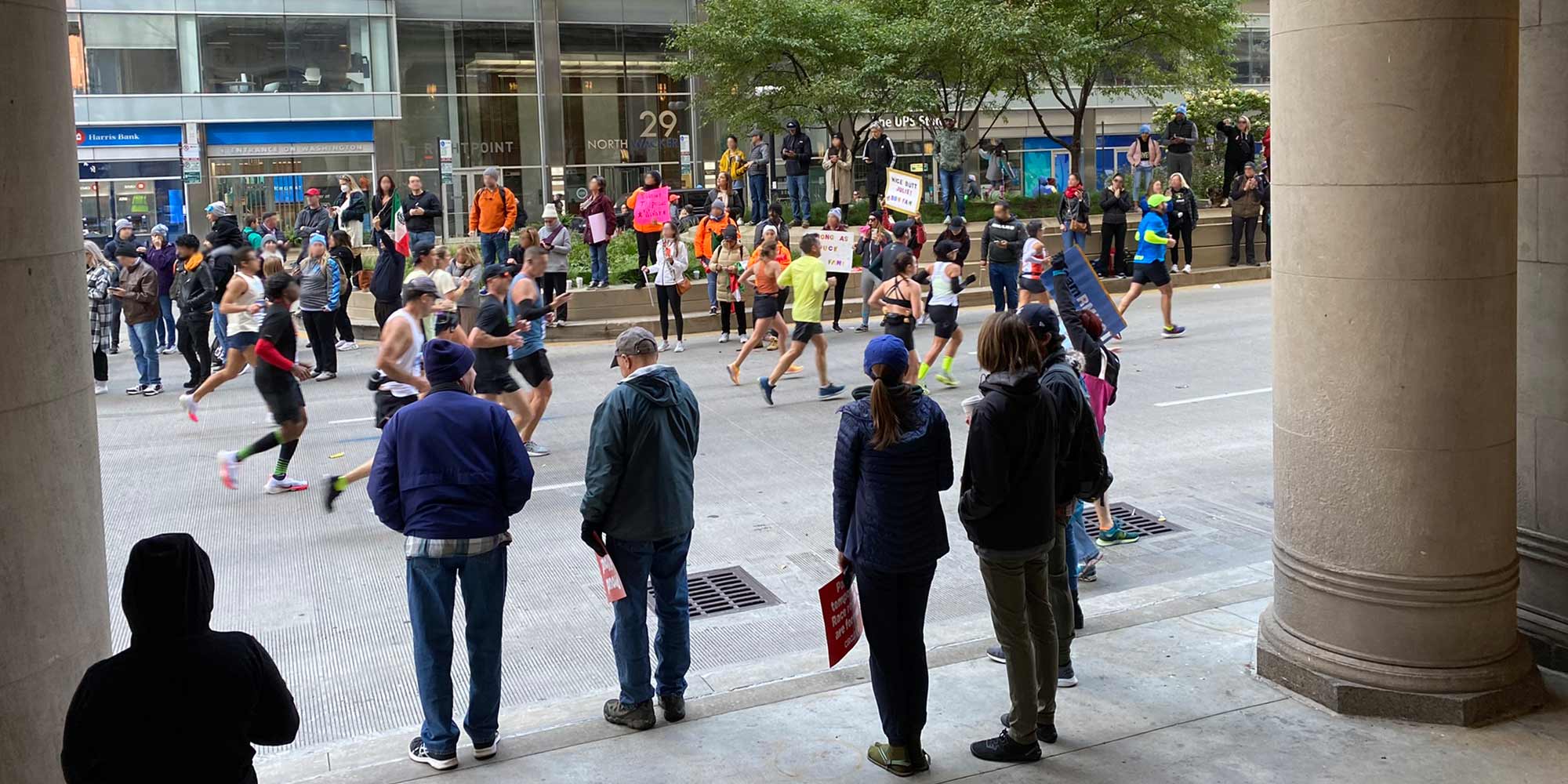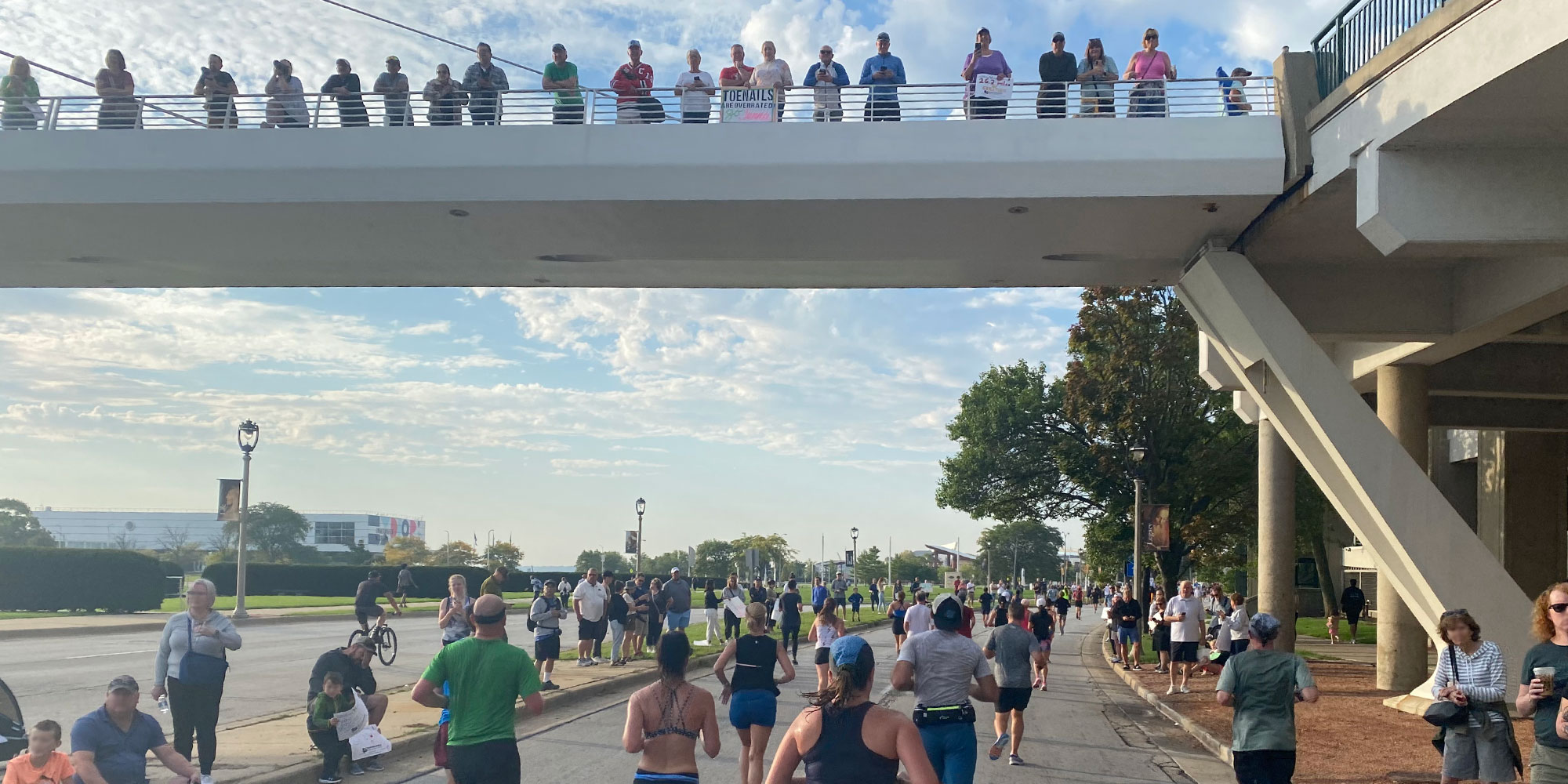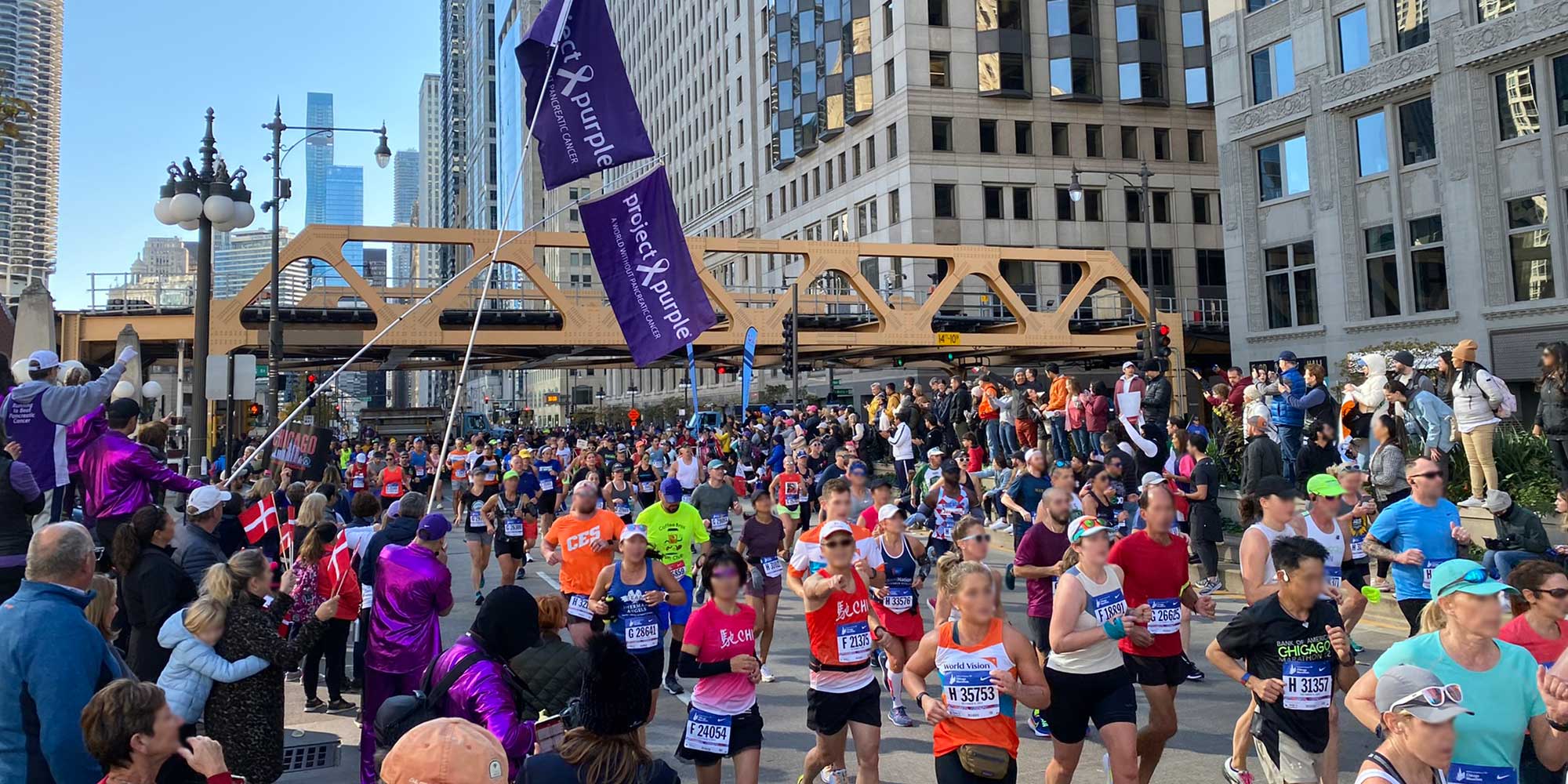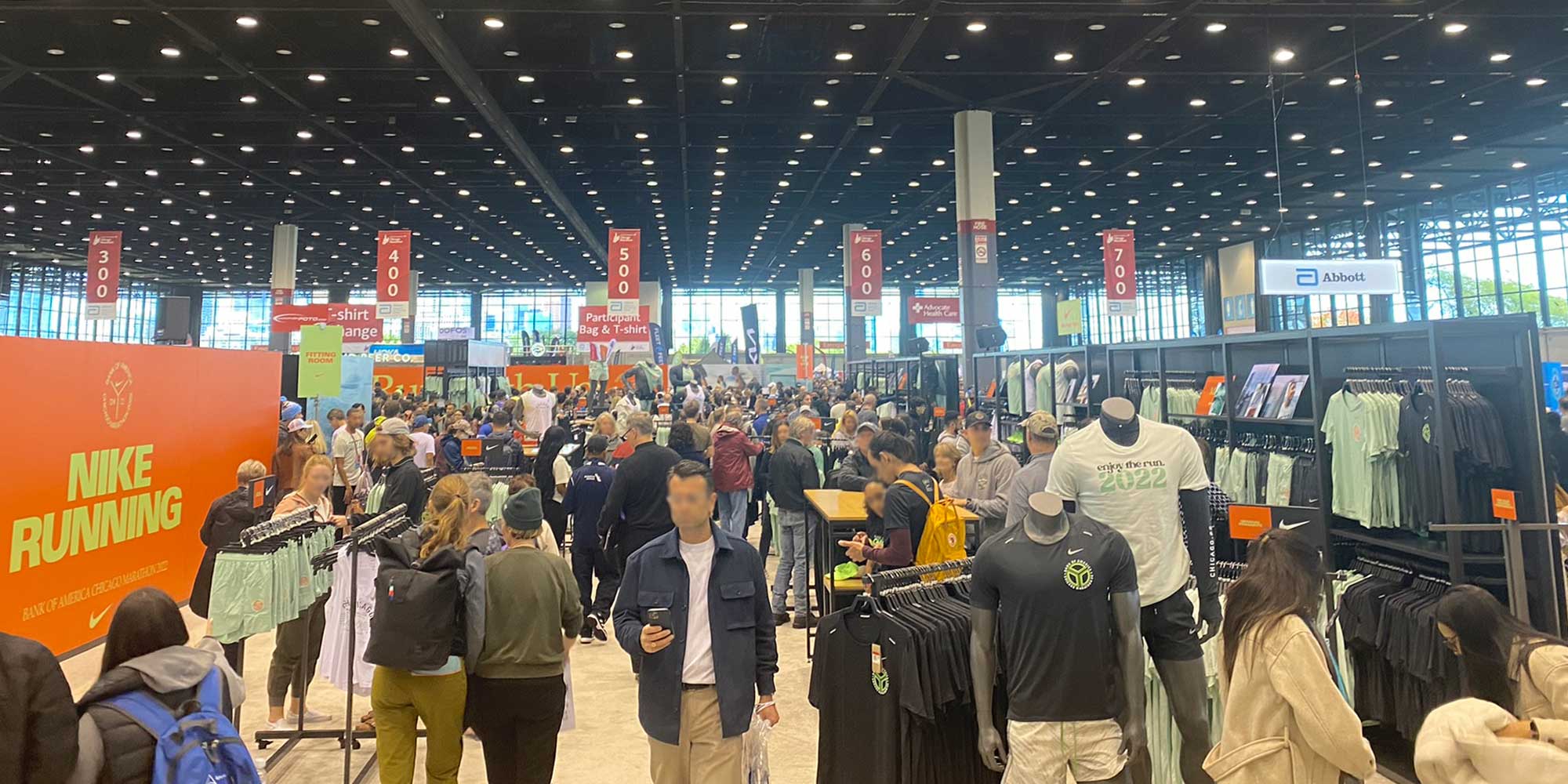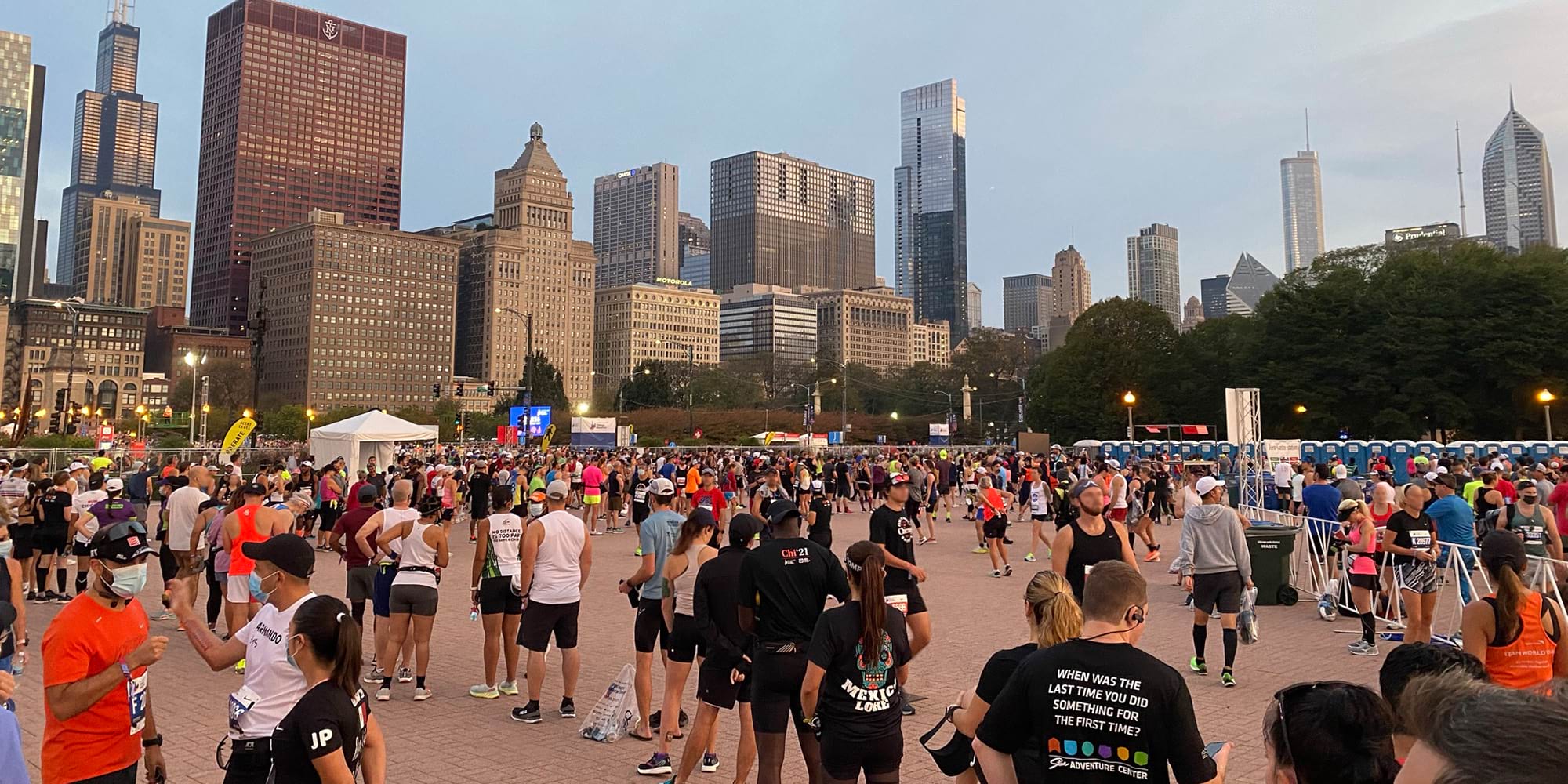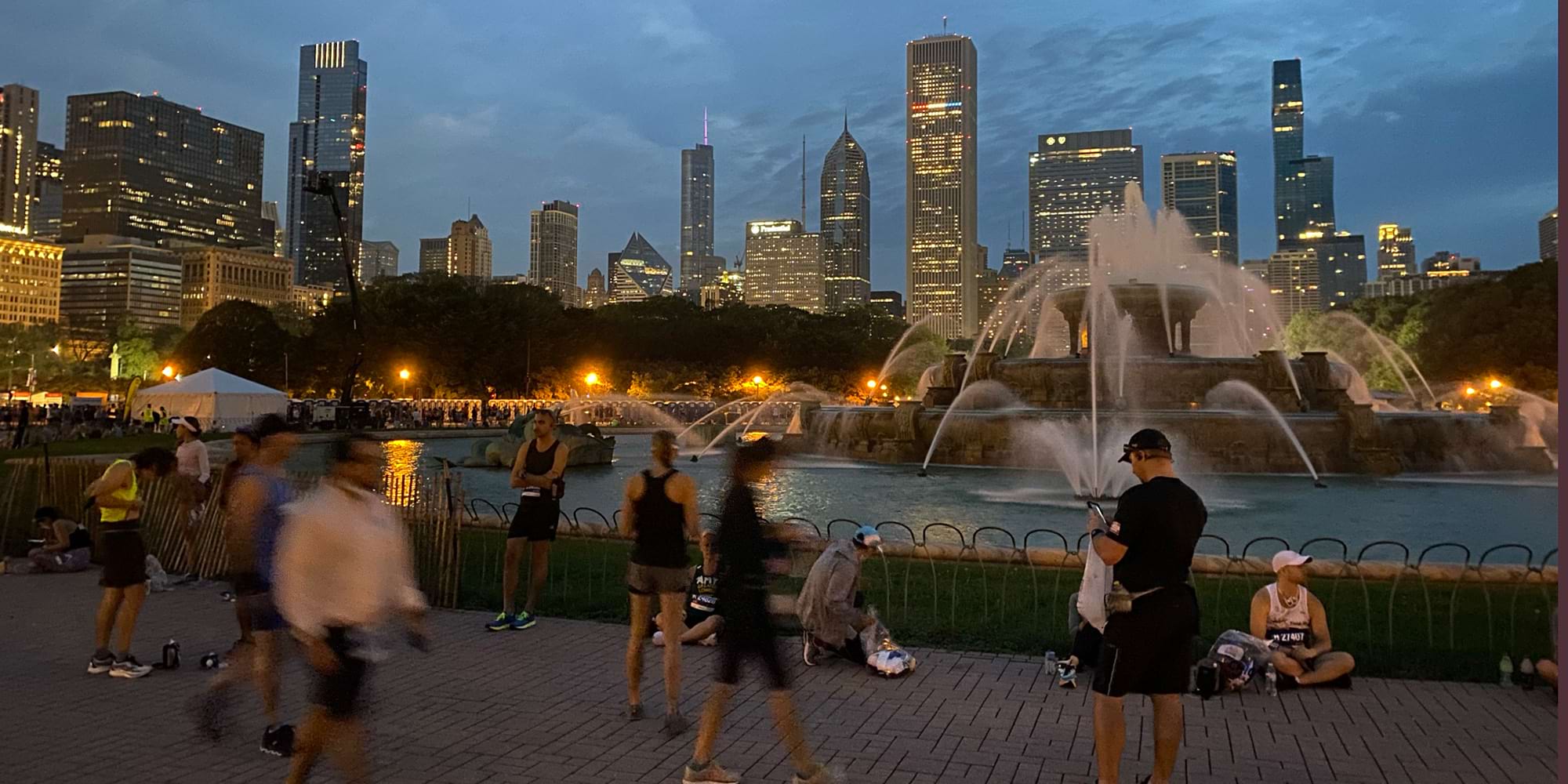“That day remains very special to me and if I had one day to live over in my lifetime, it would be my first marathon.”
- Dick Traum
Founder of Achilles Track Club
“The marathon is less a physical event than a spiritual encounter.”
- Tim Noakes
Avid Marathoner & Author
“The marathon never ceases to be a race of joy, a race of wonder.”
- Hal Higdon
Finisher of over 110 marathons
“If It doesn’t challenge you, it won’t change you.”
- Fred DeVito
Fitness Author & Business Owner
What's the point?
Let me start with this - if you’re on the fence about running a marathon…do it. I’ve never heard anyone say they regretted it. I’m assuming you already know the benefits of running in general, so I’m going to go over the benefits that are specific to running a full marathon.
You get positive attention. People in general seem to be impressed with a full marathon. It really doesn’t matter how fast you run it, most people don’t even know what a good time is.
People are proud of you. There aren’t a whole lot of moments as an adult where people are genuinely proud of you, the day of the marathon is one of those moments.
There is a deep sense of accomplishment. The harder the run the more rewarding it will be, and this is going to be the hardest run you’ve ever done.
It changes your perspective. The process of setting a difficult goal, forming a plan, and following through with it will change your perspective and expand your mind. Things that appeared too challenging and overwhelming won’t appear that way anymore. You’ll have the confidence and work ethic to achieve other goals.
The Prerequisites
You should have already run an organized race. I’m going to state the obvious and say that a full marathon should not be your first race. You should have run a half marathon or at the very least a 5K or 10K. You want to have the experience of completing an organized race ahead of time.
You should already be running regularly. You should be running 15 miles a week or more and have at least one full year of running regularly under your belt. You could technically start a marathon training plan without any previous experience, but it’s not a beginner distance.
You should be in decent shape already. Running a marathon to lose a large amount of weight is a bad idea. There are more effective ways to lose weight. If you are significantly overweight you should lose the weight first and then run a marathon.
You should be willing to make a big commitment. Think about what that really means. You might have to skip going out for drinks, golf, your kids baseball game or a family vacation. You’re going to be running four days a week for four months, including a long run every weekend.
The Prep Work
Picking a Race
Traveling for a race can be a fun experience, and sometimes it’s necessary depending on where you live. However, if it’s possible, you should pick a race close to home for the following reasons:
- It’s cheaper - Marathons are already $100 or more so you might not want to add travel expenses to that.
- It’s easier for your friends and family to attend.
- You’ll stay in your comfort zone. You sleep in your bed, cook food in your kitchen, and you don’t have to deal with the stress of traveling.
If you do decide to travel you'll have to decide on a city. Running a marathon is a similar experience to going on a vacation. For example, if you go to Chicago it's going to be exciting but also expensive and chaotic.
Picking a Training Plan
You don't have to follow a training plan, but you should. It’s too long and difficult of a race to wing it. So you need to get a training plan that fits you. You have a few options:
- Get one for free online. There are free training plans available on this website.
- Pay for one - either online or buy a running book with plans.
- Hire a running coach that will make a custom plan for you. This is obviously going to be the most expensive option.
You can compare multiple plans first to see what’s out there. There are a lot of plans and they are all different. Some require a lot more training than others, so it’s important to find one that fits your goals. For example, if you’re just trying to finish and you are planning on running at a 12 minute pace, you want to pick a beginner plan.
Equipment - Get Your Gear in Order
Shoes Let’s start with the most important piece of equipment. Most experts say a high quality pair of running shoes will last between 300 to 500 miles. So you're going to need two pairs of shoes. You could get away with only buying one pair of shoes if you already have a pair in decent shape.
Apparel You’re going to be outside running in public a lot, so you may as well look good and buy some new clothes. Also a good idea: nice running socks, waterproof socks, a running belt/fanny pack, a hat and athletic sunglasses.
Watch A smartwatch is invaluable for running and especially marathon training. You’re going to be tracking distances and time regularly. You could technically do it with your phone but it’s so much easier with a watch. They’re actually quite affordable nowadays and they’re great for everyday use as well.
For Your Skin Vaseline, sunblock and bug spray. Sunblock is very important, you’re going to spend a lot of time in the sun and sunburn will negatively affect your performance. Vaseline for longer runs is essential.
Prepare Yourself For What’s Coming
You’re going to have to run on work days, when you’re in a bad mood, when it’s hot and humid or when you feel like doing something else. Even if you love running, the training is going to feel tedious and boring at times. It’s a lot of running for a long time and your legs will constantly be sore. But it’s also a fun adventure. You’ll get through it, and you’ll be a way better runner by the end of it.
Picking a Goal Time
You don’t have to have a goal time. I’ve heard other people say that you should just be focused on finishing if it’s your first marathon. I always like to have a goal time to shoot for. For a marathon it’s important to be realistic. If you had a recent half marathon time of 2:10:00, you are probably not going to be running 4:30:00 in a full marathon. The full is so much harder than the half. There is more information that will help on the pacing tools page.
The Training
Following the Plan
You should aim to follow the plan exactly. Over the course of four months, some stuff is going to come up, so if you miss a few runs it’s not a big deal. Make some adjustments in the plan and move on. Just don’t miss runs unless you have a good reason.
The Long Runs
The long runs are the most important. You’re going to want to bring a snack (like energy bars or gels) and drink a lot of water. This is a good chance to experiment with your fueling. For example, you can try eating a gel every 45 minutes. You are going to run them at a slow pace, and that’s ok, they’re supposed to be like that. If you have to take a break or power walk for some of the time, that’s ok too.
Speed Work
Most plans are going to have speed work (running at a fast pace for a certain distance) as part of the plan, and it’s important if you have a goal time. I recommend doing the speed workouts at a track if you have one available. It’s easier to focus because you don’t have to worry about pedestrians, cars, traffic lights, etc. Trails are another good option.
Pacing
Other than the speed work runs, you should be running at a pace that’s comfortable but challenging. There is saying - long slow runs make long slower runners. The harder you train the faster your marathon time will be for the most part. That being said, it’s a long and demanding training plan, so you don’t want to burn yourself out or get injured. Find a good balance.
Where to Run
I like to change up my route so it doesn’t get boring, and I’ll use different routes depending on how far and fast I’m running. My trail or track runs are almost always faster than my neighborhood runs. Running in a neighborhood on the other hand is good because you can just walk out the door and start. Here are some things that are good on a running route:
- Public bathrooms
- Water fountains
- A store in case you want to buy a drink or use the bathroom.
- Shade - trails with trees are good for this.
- Neighborhoods with sidewalks and lights if you’re going to run at night (a flashlight is helpful as well).
- A neighborhood with light car and pedestrian traffic.
Running Other Races During Your Training
If you’re serious about lowering your time, it’s a good idea to combine races. You will not run as fast in your training as you will in an organized race. Your adrenaline is going, there are water stops, and your time is going to be posted online. A half marathon is a good distance and it’s easy to work into your plan. Another option is to run two marathons in the same year.
Avoiding Injuries
The one thing that could potentially derail you from your training is getting injured. All of that time and energy you put into running is going to be pointless if you get injured. The good news is that a lot of injuries are preventable, here are some quick tips:
- Start the training in good shape. Start running months before the training period begins.
- Take stretching seriously. Do dynamic stretches before and static stretches after every run.
- Do some type of strength workouts. You should do strength training before the marathon training starts because you aren’t going to have much extra time or energy.
- Don’t do anything that could potentially injure you, especially stuff you aren’t used to doing. Things like softball, basketball, or moving a heavy couch…just don’t do them.
Diet
You probably already know which foods are healthy or unhealthy, so I'm just going to give some brief diet tips that are related to marathon running and training. I have a diet page that has more general diet information.
Eat healthy after you run.
It’s easier to eat healthy when you’re hungry. Do you ever snack on broccoli at 9pm when you’re not that hungry? No, you want to eat a cookie.
It’s good to have some food prepared or something that is relatively easy to cook when you’re done running. I usually eat something that is light in carbs and heavy in protein, like ground turkey and eggs. You don’t want to return home with nothing to eat, it makes it way too easy to go out and get a burrito.
Dehydration
There are two dehydration tips I want to give. The first is this - don’t go to bed dehydrated. It can cause a bad headache that can ruin the next day. This has happened to me before when I’ve gone on a long run on a hot day. The second is this - drink more water during your runs because it will affect your performance. You can definitely hit “the wall” from dehydration.
Alcohol
Alcohol and marathon training don’t mix. I’m not saying you need to give up alcohol, but it’s a good idea to limit it to only a few drinks on special occasions. There will be plenty of time to drink once it’s over.
Junk Food
Junk food is especially bad to eat on the day of a run or the day before a run. It will upset your stomach and hurt your performance.
Eating On Race Day and During the Race
I cover this in “The Race” section below.
Carb Loading
Carb loading is a diet strategy used by runners in the days before a long run or race. The idea is to increase carb intake so you can store more energy. It can help a runner avoid hitting ‘the wall’ in the later stages of a long run.
- Practice carb loading throughout your training. You don’t want to be trying anything new in the week before your race.
- Carb loading is only necessary for runs that are 90 minutes or longer.
- Start carb loading 4-6 days before the race. For a half marathon or shorter do 4 days, for a full marathon do 6. Gradually start eating more carbs, and in the two days before the race your diet should be about 80% carbs. Those two days are the most important.
- You don’t need to eat more calories than usual. Don’t feel like you need to stuff yourself, that’s going to do more harm than good.
- Keep it simple and don’t overthink it. It doesn’t have to be an exact science. Doing calculations like ‘X grams of carbs per pound of body weight’ is overcomplicating the process for most runners in my opinion.
- The day before the race you should eat your final meal at around 4pm or earlier. That will give your body more time to digest the food.
- More info on carb loading
The Race
You’ve probably already run an organized race, if you haven’t, be sure to check out this page - completing your first race. I’m assuming you already know about bibs, timing chips, etc. These are tips that are specific to a full marathon.
Preparation
Get a good stretch the day before. Stick with what you’re used to. When you eat your big carb meal the day before you should do it earlier in the day, around 2pm. That way your body will have plenty of time to digest it.
Prepare everything ahead of time. Make a checklist that includes all of the race info and everything you need to bring. Lay out your food, equipment and clothes the night before. Tell your friends and family where on the course you want to meet and take a quick photo. Doing prep work will make the race day less stressful.
The Weather
The weather on race day is important and it can drastically affect your time if it’s hot out. You have no control over it, so just roll with whatever weather you get and be positive.
Clothes
Since the race is so long, the weather is going to change a lot from the start of the race to the finish. It’s a good idea to bring an old throwaway sweatshirt that you can take off once it gets hotter, it’s also good to have when you’re waiting around outside before the race starts.
Don’t wear anything you haven’t run in before and you should dress like it’s 20 degrees warmer than it actually is. Pay attention to the wind and the rain as well. I would also definitely recommend bringing a hat and gloves if it’s going to be somewhat cold, you can always take them off. If there is heavy rain expected you can wear waterproof socks. Also bring a hat - rain in the face is annoying.
Race Day Morning
You should eat as soon as you wake up. I usually eat something light like two bananas and a bagel. You already ate a large amount of carbs the day before so you shouldn’t be too hungry. I also like to drink coffee as soon as I wake up because it’s a laxative and I want to go #2 before the race - not during it. Going on a short jog or doing jumping jacks after I drink the coffee will make me have to go as well.
I’m more of a driver than a public transportation user, so I always drive to races. If you don’t already use the app Spot Hero, start using it. Not only is it way cheaper, but you know exactly where you’re going to be parking ahead of time. Arrive with plenty of time to do your warmup stretches and prepare mentally. It’s definitely better to be early than late.
Eating During The Race
During a marathon I eat a 100 calorie gel every 45 minutes. I weigh around 200 lbs, so you might eat less than that, but eating once every 45 minutes has always worked for me. I will also drink some Gatorade during the run, which most races have. I prefer gels (the ones with caffeine in them) because they’re fast to consume, it’s just a jelly in a packet that you squeeze into your mouth. Other people prefer something dry like a granola bar. As I said before - practice with your fueling during your training. More Info
Peeing During and Before the Race
You do not want to pee during the first few miles of a race. The first set of on course porta potties will usually have a line. You don’t want to add four minutes to your time for no reason. Arrive early so you’ll have plenty of time to go. Also, do a light warmup or jog before the race, your body will retain water if it knows you’re exercising.
Marathons will have a designated section for all the runners to wait at before the race. Some will have an indoor bathroom to use but most only have porta potties. For some reason there is often one set of porta potties that has a 20 minute line and then another set that has no line, I’ve seen this multiple times. Scope out the whole area when you arrive.
Pacing Strategy
The biggest pacing mistake for a marathon is going out too fast. You have to respect the distance. Most advice that I’ve heard says to run the marathon at an even pace. So if your goal time is 4:30 you should run each mile at 10:17. I prefer this method because it keeps it simple. The less you have to think during the run the better. This is also where a smartwatch helps a lot, you don’t have to calculate your pace, the watch does it for you.
If you run at your goal pace and you get to mile 20 or so and are feeling great, then you can pick up the pace, breaking your goal time is always good. But odds are you are going to be grinding towards the end, 26.2 miles is no joke. If you can’t keep up with the pace towards the end of the race then just slow down, don’t quit. Sometimes you have to roll with the punches and adjust the plan.
Walking is something that you’ll see a lot of in a full marathon. I would guess that in your first marathon you will most likely hit the wall in the later stages and you will need to walk (especially if it’s hot out). Walking is ok, and a combo of running and walking is sometimes what’s necessary to get across the finish line.
Mistakes I Made in My First Marathon
Winged My Training
I picked a plan but I was loose with it. I made excuses and skipped runs just because I wasn’t feeling it. I also didn’t do much designated speedwork. I didn’t respect the 26.2 mile distance. I hit the wall at mile 18 and I ended up walking a lot. Running a marathon undertrained is not fun.
Didn’t Walk Afterwards
The Chicago Marathon actually has a designated area at the end of the race where everyone is forced to walk for 10 minutes. The Madison Marathon didn’t have this though and the first thing I did when I finished was laid down on the ground. My legs locked up on me and I couldn’t walk. I actually crawled to my car, I looked ridiculous.
Didn’t Eat Enough Caffeine During the Race
It’s hard to go five hours in the morning without any caffeine if you consume it regularly. The caffeinated gels work great.
Didn’t Put Vaseline on My Toes
I used vaseline but it never occurred to me to put it in between my toes. I had two huge blisters afterwards.
Wore Short Socks
Your socks should be long enough so the back of your shoe doesn’t touch your skin. This ended up causing a big sore that bled a lot.
Dressed Like a Dork
Back then I was a cheapskate about buying running apparel. Marathon pictures are forever.
Stayed at a Dump Hotel
If you’re traveling you should get a decent room. The trip is hard enough as it is.
Didn’t Bring Enough Food On My Trip
If you’re traveling you should make sure that you bring a good amount of food. It’s obviously hard or impossible to cook in a hotel room, so be prepared.
You Finished! Now What?
As far as recovering from the marathon, I think it’s pretty much self explanatory - sleep, eat, stretch, and hydrate. You’ve already done some runs over 20 miles, so nothing should be too surprising.
After it’s done, you might get a feeling of emptiness. Your life revolved around this marathon and now it’s over. Here are some ideas on what to do after the marathon:
- Go do the things that you wanted to do but couldn’t: play golf, drink with friends, attend a sporting event, lift weights, go on vacation, whatever it may be.
- Run more races. You’re already in good shape, now might be a good time to set a PR for a 10k or a half marathon. You can also run another full marathon if you were disappointed with your time. You already did most of the work anyway.
- Address something important that you may have neglected. Maybe your work performance went down a bit or you didn’t spend enough time with your family.

